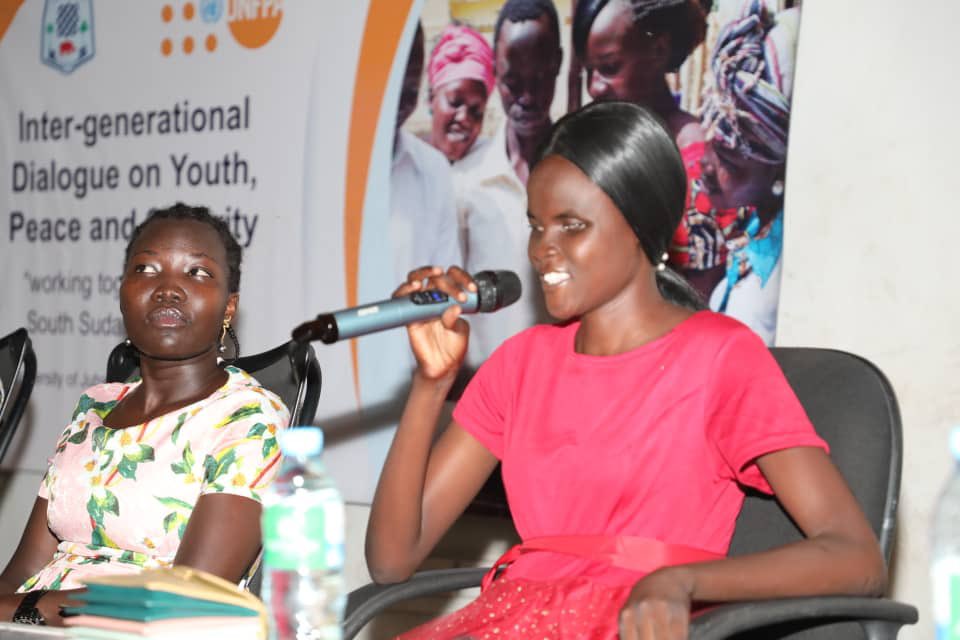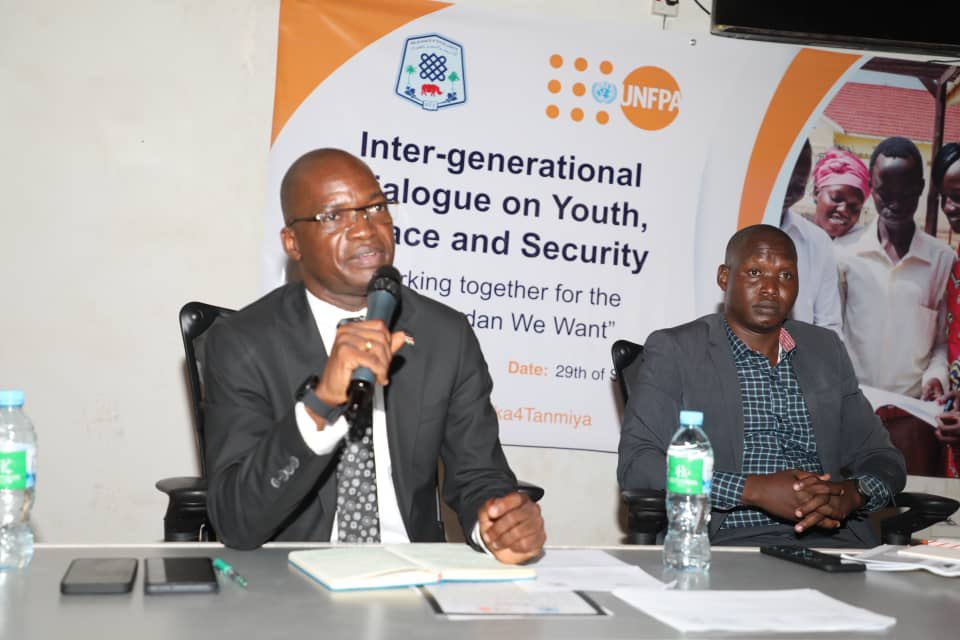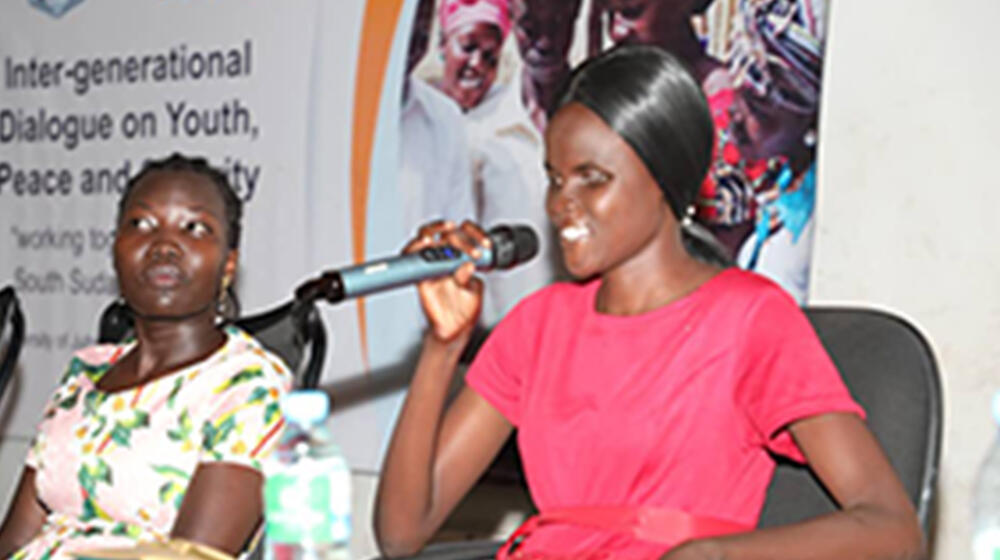Peace and stability are essential for South Sudan to prosper and develop. Despite considerable progress towards peace with a reduction in direct conflict between parties, sub-national and localized violence continue to occur in many parts of the country which continues to severely affect the country’s progress.
It is noted that securing a lasting peace is the responsibility of all generations in the country particularly with participation of the young people who under the age of 30 constitute 73.6 percent of the population according to UNFPA State of the World Population Report 2022 estimates.

Like in most countries, young people in South Sudan are faced with many challenges including lack of employment, education, and limited participation in decision making as they are systematically excluded due to their age and assumptions that they are inexperienced. Such a situation has led to frustration among youth and has contributed to youth engaging in violence including armed conflict.
In 2015, the United Nations Security Council (UNSC) adopted Resolution 2250, the first resolution that specifically addresses the role of young people on matters of peace and security. This ground-breaking resolution on Youth, Peace and Security recognizes the positive role young people can play in conflict prevention, the prevention of violence, and the promotion and consolidation of peace. In this regard, the government of South Sudan has committed to advance the Youth Peace and Security agenda in the country.
UNFPA together with the University of Juba organized a series of intergenerational dialogues with the youth, bringing together officials from government, private sector, activists, and people with disability in the spirit of leaving no one behind. The discussion centred around the role of young people in youth, peace, and security while tackling issues of reproductive health and rights.
This follow up dialogue was held to specifically discuss openly the role of young people on matters of youth, peace, and security and explore solutions to address the challenges.
Hon. Pia Philip, Undersecretary of the Ministry of Peacebuilding, in recognizing the positive role young people play in conflict prevention, the prevention of violence, and the promotion and consolidation of peace, stated that “The vibrant discussions and contributions by young people in peacebuilding presents hope, together with the joint efforts of youth organizations, the UN, and government working together. The young people have a big role to play, they are the biggest percentage of this country’s population, and the solution lies in their hands. The Government with its limited resources will do the best it can”.
The Under Secretary commended the initiative by UNFPA and efforts by the young people as it is critical to have dialogue with youth and adults to foster greater understanding on the Youth Peace and Security agenda of South Sudan.

“More of such dialogues are an opportunity for the young people to voice their perspectives wit adults and hear from them on how youth could be engaged in the youth, peace, and security agenda to attain and sustain lasting peace and stability and to move South Sudan from insecurity and conflict to development and prosperity”- Prof. Robert Deng Mayom, the Vice Chancellor of University of Juba.
The panel was made up of Precious Ankangelo who is living with disability from the Youth Advisory Panel, Anna Maneno a Youth gender advocate, Achai Kuol representing the Private Sector, representative from the Ministry of Youth, Hon. Pia Philip Michel, Under Secretary, in the Ministry of Peacebuilding and moderated by Dr. Ademola Olajide, the UNFPA Resident Representative.
The intergenerational dialogue brought together around 250 students from the University of Juba, University of Upper Nile and other universities. They discussed perspectives, challenges, and priorities to support the active participation of men, women and young people, considering their diversity in conflict prevention, social cohesion, conflict transformation, local and national peacebuilding, and reproductive health and rights touching on cultural practices that hinder access


